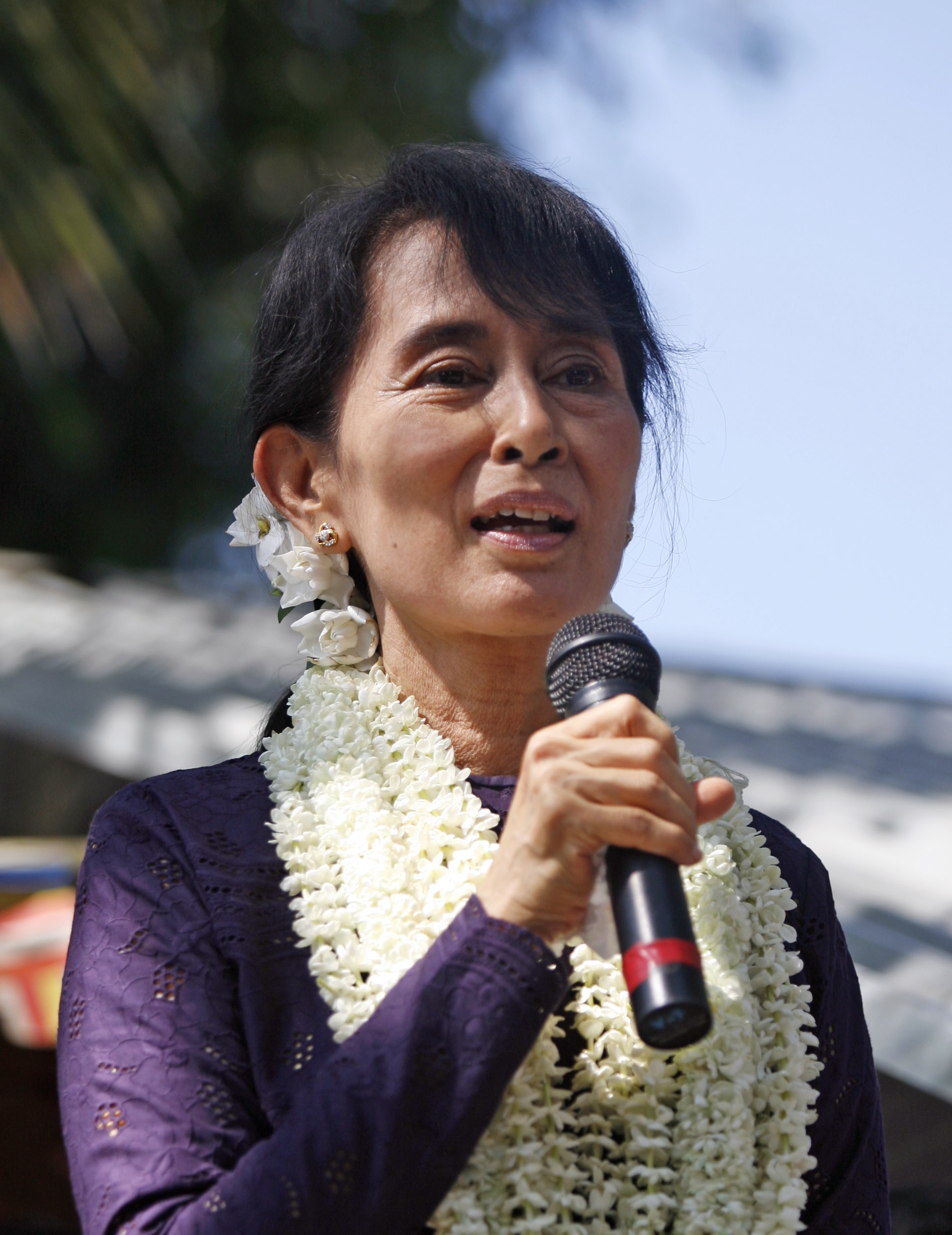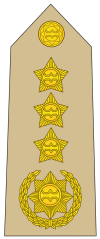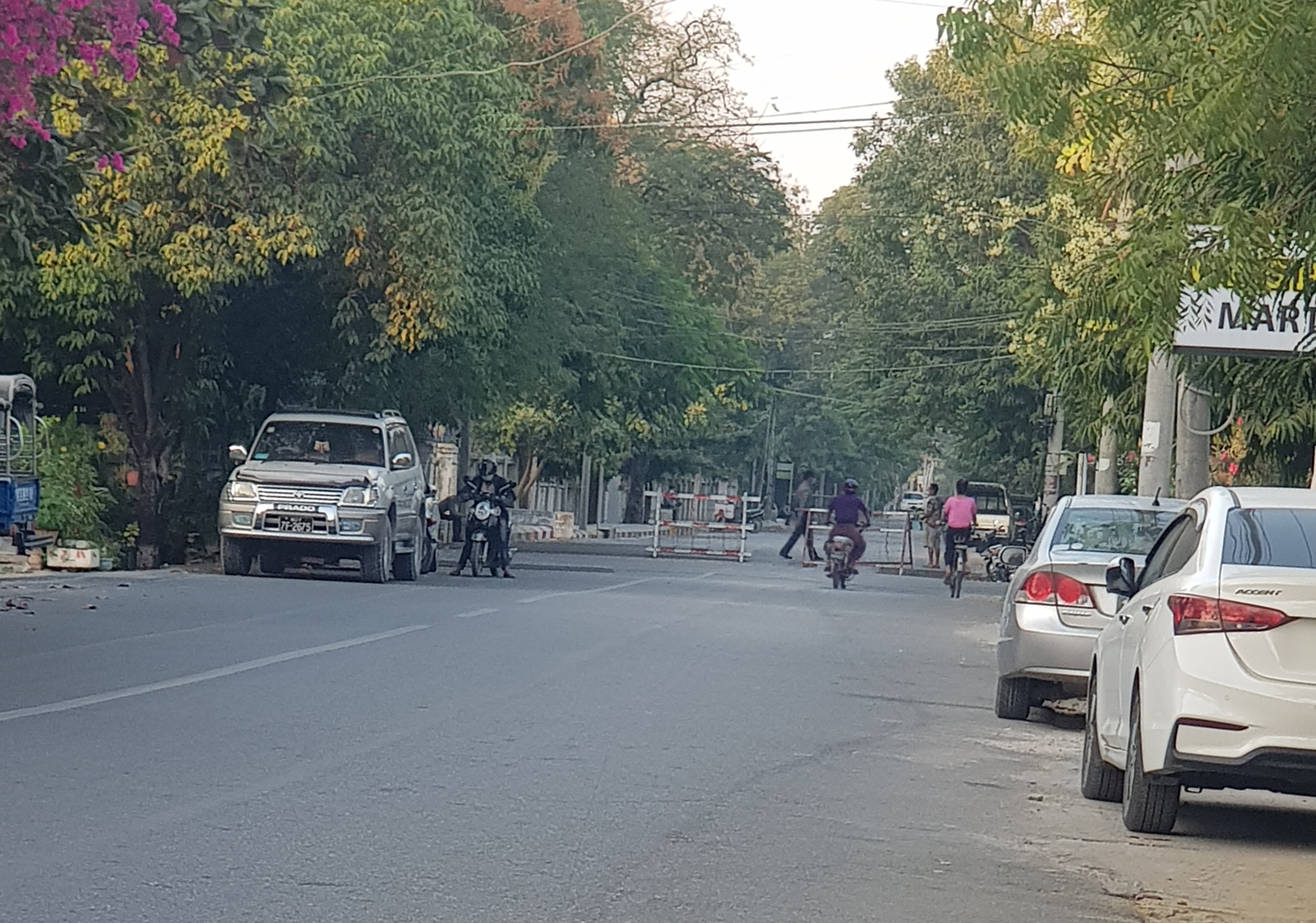|
Elections In Burma
Myanmar is a unitary republic, with elected representatives at the national state or region levels. On the national level, the president who is the head of state and legislature, is elected indirectly through an Electoral College. According to the 2008 constitution, the term durations of the President, and Cabinet are five years. All elections are regulated by the Union Election Commission. Myanmar is divided into 330 constituencies, and elections are only held in constituencies where there is more than one candidate. Otherwise, a representative is selected from each constituency with additional 110 seats appointed by the military, These 440 representatives comprise the Pyithu Hluttaw. The Election Commission, a body dominated by the military may decide not to hold elections in certain constituencies where they deem the situation unsafe. The goal of the election is to appoint Members of Assembly in both the upper house (the House of Nationalities) and the lower house (the Ho ... [...More Info...] [...Related Items...] OR: [Wikipedia] [Google] [Baidu] |
Myanmar
Myanmar, ; UK pronunciations: US pronunciations incl. . Note: Wikipedia's IPA conventions require indicating /r/ even in British English although only some British English speakers pronounce r at the end of syllables. As John C. Wells, John Wells explains, the English spellings of both Myanmar and Burma assume a non-rhotic variety of English, in which the letter r before a consonant or finally serves merely to indicate a long vowel: [ˈmjænmɑː, ˈbɜːmə]. So the pronunciation of the last syllable of Myanmar as [mɑːr] or of Burma as [bɜːrmə] by some speakers in the UK and most speakers in North America is in fact a spelling pronunciation based on a misunderstanding of non-rhotic spelling conventions. The final ''r'' in ''Myanmar'' was not intended for pronunciation and is there to ensure that the final a is pronounced with the broad a, broad ''ah'' () in "father". If the Burmese name my, မြန်မာ, label=none were spelled "Myanma" in English, this would b ... [...More Info...] [...Related Items...] OR: [Wikipedia] [Google] [Baidu] |
State And Region Hluttaws
Myanmar ( also known as ''Burma'') is divided into twenty-one administrative subdivisions, which include seven states (; ''pyi ne'', ), seven regions (; ''taing detha gyi'', ), five self-administered zones and one self-administered division (Wa Self-Administered Division). The regions were called divisions prior to August 2010. Each State and Region has a State Hluttaw or Regional Hluttaw made up of elected civilian members and unelected representatives of the Armed Forces. The Constitution of Myanmar grants the Myanmar Armed Forces' Commander-in-Chief the right to appoint military officials to one-third of parliamentary seats, while the remaining two-thirds of seats are elected. The number of seats in each State or Region Hluttaw depends on the number of townships (each township constituency has 2 MPs), as well as ethnic representatives. The largest Hluttaws are the Shan State and Yangon Region Hluttaws, with 143 and 123 seats respectively, while the smallest are the Kayah State ... [...More Info...] [...Related Items...] OR: [Wikipedia] [Google] [Baidu] |
State Law And Order Restoration Council
State may refer to: Arts, entertainment, and media Literature * ''State Magazine'', a monthly magazine published by the U.S. Department of State * ''The State'' (newspaper), a daily newspaper in Columbia, South Carolina, United States * ''Our State'', a monthly magazine published in North Carolina and formerly called ''The State'' * The State (Larry Niven), a fictional future government in three novels by Larry Niven Music Groups and labels * States Records, an American record label * The State (band), Australian band previously known as the Cutters Albums * ''State'' (album), a 2013 album by Todd Rundgren * ''States'' (album), a 2013 album by the Paper Kites * ''States'', a 1991 album by Klinik * ''The State'' (album), a 1999 album by Nickelback Television * ''The State'' (American TV series), 1993 * ''The State'' (British TV series), 2017 Other * The State (comedy troupe), an American comedy troupe Law and politics * State (polity), a centralized political organizatio ... [...More Info...] [...Related Items...] OR: [Wikipedia] [Google] [Baidu] |
Pyithu Hluttaw
The Pyithu Hluttaw ( my, ပြည်သူ့ လွှတ်တော်, ; House of Representatives) is the ''de jure'' lower house of the Pyidaungsu Hluttaw, the bicameral legislature of Myanmar (Burma). It consists of 440 members, of which 330 are directly elected through the first-past-the-post system in each townships (the third-level administrative divisions of Myanmar), and 110 are appointed by the Myanmar Armed Forces. After the 2010 general election, Thura Shwe Mann was elected as the first Speaker of House of Representatives. The last elections to the Pyithu Hluttaw were held in November 2015. At its first meeting on 1 February 2016, Win Myint and T Khun Myat were elected as Speaker and Deputy Speaker of the Pyithu Hluttaw. As of 8 November 2015, 90% of the members are men (389 members) and 10% women (44 members). After the coup d'état on 1 February 2021, the Pyidaungsu Hluttaw was dissolved by Acting President Myint Swe, who declared a one-year state of emerg ... [...More Info...] [...Related Items...] OR: [Wikipedia] [Google] [Baidu] |
1990 Burmese General Election
General elections were held in Myanmar on 27 May 1990, the first multi-party elections since 1960, after which the country had been ruled by a military dictatorship. The elections were for a parliament-sized constitutional committee to draft a new constitution. The result was a landslide victory for Aung San Suu Kyi's National League for Democracy (NLD), which won 392 of the 492 seats. However, the military junta refused to recognise the results and continued ruling the country until 2011. Voter turnout was 72.6%. Background The aftermath of the uprising in 1988 and the rise of leader Aung San Suu Kyi placed worldwide media attention on the political situation in Myanmar. In September 1988, the State Law and Order Restoration Council (SLORC, the predecessor to the State Peace and Development Council), in its Declaration No. 1, had set four goals for the country: to maintain law and order, improve transportation, improve the humanitarian situation and hold multi-party electi ... [...More Info...] [...Related Items...] OR: [Wikipedia] [Google] [Baidu] |
8888 Uprising
The 8888 Uprising ( my, ၈၈၈၈ အရေးအခင်း), also known as the People Power UprisingYawnghwe (1995), pp. 170 and the 1988 Uprising, was a series of nationwide protests, marches, and riots in Burma (present-day Myanmar) that peaked in August 1988. Key events occurred on 8 August 1988 and therefore it is commonly known as the "8888 Uprising". The protests began as a student movement and were organised largely by university students at the Rangoon Arts and Sciences University and the Rangoon Institute of Technology (RIT). Since 1962, the Burma Socialist Programme Party had ruled the country as a totalitarian one-party state, headed by General Ne Win. Under the government agenda, called the Burmese Way to Socialism, which involved economic isolation and the strengthening of the military, Burma became one of the world's most impoverished countries.Burma Watcher (1989)Woodsome, Kate. (7 October 2007)'Burmese Way to Socialism' Drives Country into Poverty Voic ... [...More Info...] [...Related Items...] OR: [Wikipedia] [Google] [Baidu] |
Burma Socialist Programme Party
The Burma Socialist Programme Party (BSPP), ; abbreviated , was Burma's ruling party from 1962 to 1988 and sole legal party from 1964 to 1988. Party chairman Ne Win overthrew the country's democratically elected government in a coup d'état on 2 March 1962. For the next 26 years, the BSPP governed Burma under a totalitarian military dictatorship, until mass protests in 1988 pressured party officials to adopt a multi-party system. Founding and programme The BSPP was established on 4 July 1962, after the declaration of the "Burmese Way to Socialism" (BWS) by the Union Revolutionary Council (URC) on 30 April 1962. The BWS set out the political and economic ideology of the URC which had taken over power in the military coup of 2 March 1962. The BSPP advocated a programme of the "Burmese Way to Socialism" which, according to Ne Win, incorporated elements of Buddhism, humanism, and Marxism. The programme was described by some scholars as anti-Western and isolationist. A b ... [...More Info...] [...Related Items...] OR: [Wikipedia] [Google] [Baidu] |
One Party Rule
A one-party state, single-party state, one-party system, or single-party system is a type of sovereign state in which only one political party has the right to form the government, usually based on the existing constitution. All other parties are either outlawed or allowed to take only a limited and controlled participation in elections. Sometimes the term "''de facto'' one-party state" is used to describe a dominant-party system that, unlike the one-party state, allows (at least nominally) democratic multiparty elections, but the existing practices or balance of political power effectively prevent the opposition from winning power. Although it is predated by the 1714 to 1783 "age of the Whig (British political party), Whig oligarchy" in Great Britain, the rule of the Committee of Union and Progress (CUP) over the Ottoman Empire following the 1913 Ottoman coup d'état, 1913 coup d'etat is often considered the first one-party state. Concept One-party states justify themselves t ... [...More Info...] [...Related Items...] OR: [Wikipedia] [Google] [Baidu] |
Ne Win
Ne Win ( my, နေဝင်း ; 10 July 1910, or 14 or 24 May 1911 – 5 December 2002) was a Burmese politician and military commander who served as Prime Minister of Burma from 1958 to 1960 and 1962 to 1974, and also President of Burma from 1962 to 1981. Ne Win was Burma's military dictator during the Socialist Burma period of 1962 to 1988. Ne Win founded the Burma Socialist Programme Party (BSPP) and overthrew the democratic Union Parliament of U Nu in the 1962 Burmese coup d'état, establishing Burma as a one-party socialist state under the Burmese Way to Socialism ideology. Ne Win was Burma's ''de facto'' leader as chairman of the BSPP, serving in various official titles as part of his military government, and was known by his supporters as U Ne Win. His rule was characterized by a non-aligned foreign policy, isolationism, one-party rule, economic stagnation and superstition. Ne Win resigned in July 1988 in response to the 8888 Uprising that overthrew the BSPP, ... [...More Info...] [...Related Items...] OR: [Wikipedia] [Google] [Baidu] |
2021 Myanmar Coup D'état
A coup d'état in Myanmar began on the morning of 1 February 2021, when democratically elected members of the country's ruling party, the National League for Democracy (NLD), were deposed by the Tatmadaw—Myanmar's military—which then vested power in a military junta. Acting president Myint Swe proclaimed a year-long state of emergency and declared power had been transferred to Commander-in-Chief of Defence Services Min Aung Hlaing. It declared the results of the November 2020 general election invalid and stated its intent to hold a new election at the end of the state of emergency. The coup d'état occurred the day before the Parliament of Myanmar was due to swear in the members elected at the 2020 election, thereby preventing this from occurring. President Win Myint and State Counsellor Aung San Suu Kyi were detained, along with ministers, their deputies, and members of Parliament. On 3 February 2021, Win Myint was charged with breaching campaign guidelines and COVID-1 ... [...More Info...] [...Related Items...] OR: [Wikipedia] [Google] [Baidu] |
National League For Democracy
The National League for Democracy ( my, အမျိုးသား ဒီမိုကရေစီ အဖွဲ့ချုပ်, ; Abbreviation, abbr. NLD; Burmese abbr. ဒီချုပ်) is a liberal democratic political party in Myanmar (Burma). It became the country's ruling party after a landslide victory in the 2015 Myanmar general election, 2015 general election but was overthrown in a 2021 Myanmar coup d'état, military coup d'état in early 2021 following another landslide 2020 Myanmar general election, election victory in 2020. Founded on 27 September 1988, it has become one of the most influential parties in Myanmar's pro-democracy movement. Aung San Suu Kyi, the former State Counsellor of Myanmar, serves as its chairperson. The party won a substantial parliamentary majority in the 1990 Myanmar general election. However, the ruling State Peace and Development Council, military junta refused to recognise the result. On 6 May 2010, the party was declared illegal ... [...More Info...] [...Related Items...] OR: [Wikipedia] [Google] [Baidu] |




